How to manage eczema, according to dermatologists
Chances are if you have eczema, you know how bad the flare-ups can get. The rashes, dryness, and extreme itching can leave your skin seriously inflamed.
A total of 31.6 million people—or one in 10 people in the U.S.—have some form of eczema at some point in their lifetime, according to the National Eczema Association. Eczema includes a number of different medical conditions that can cause itchy, inflamed skin.
The most common type is atopic dermatitis, which occurs when an immune response disrupts the skin’s barrier function, affecting the skin’s ability to keep out allergens, irritants, and other substances. That’s why proper skin care and treatment is so important when it comes to preventing eczema flare-ups—as well as soothing them if they do happen.
To find a skin care routine for eczema-prone skin, we spoke with dermatologists who shared their tips for managing flare-ups.
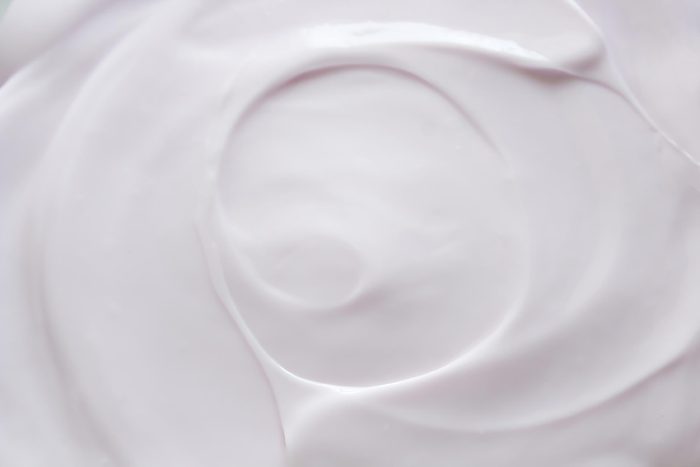
Moisturize, moisturize, moisturize
The importance of regular moisturizing can’t be overstated, experts say.
“You want to use a moisturizer on damp skin to lock in moisture, and more is always better,” says Adam Friedman, MD, professor and interim chair of the department of dermatology at George Washington School of Medicine and Hospital in Washington D.C. The overarching goal is to “lock in” moisture after showering and bathing to protect the skin barrier, which is inherently damaged in eczema. When the barrier is compromised, irritants can sneak in and water can escape, resulting in dry, itchy patches of skin. “Multiple studies show that using a moisturizer can help prevent flare-ups,” says Dr. Friedman.
The National Eczema Association gives a seal of approval to a number of products, including Avène XeraCalm A.D Lipid-Replenishing Balm, CeraVe Itch Relief Moisturizing Cream and Cetaphil Restoraderm Eczema Calming Moisturizer.
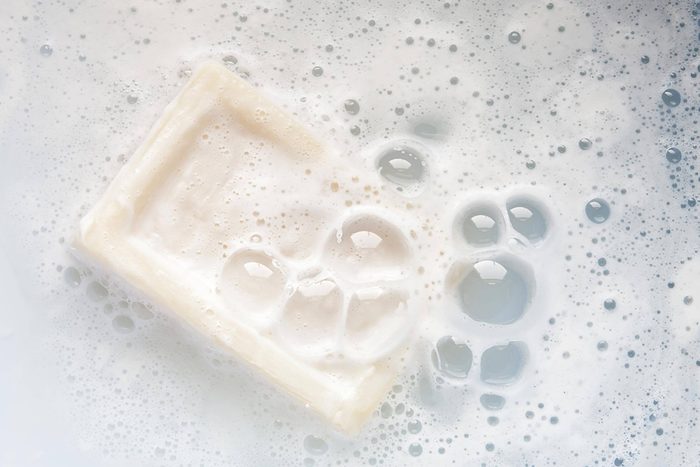
Skip the soap
Yes, really. “Soaps are designed to rip away fat and dirt from the skin,” Dr. Friedman says. “Soap is alkaline and skin is acidic, and shifting this balance messes everything up and can worsen eczema symptoms.” That’s not to say all cleansers are equally bad for eczema-prone skin. Your best bet is to avoid those that are dry out skin or are harsh. Some good alternatives include CeraVe Hydrating Cleansing Bar, Cetaphil Gentle Skin Cleanser, or Dove White Bar, Unscented. Another alternative to consider is goat milk soap. “If you are flaring, plain old water is more than fine,” he says.
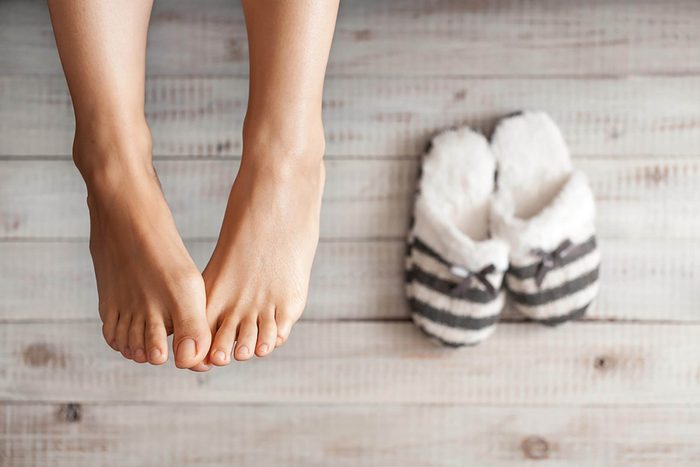
Take special care of your hands and feet
Many people with eczema may develop symptoms on their hands and feet, and these areas require special care, says Dr. Friedman. “Take a bath in lukewarm water, grease up your hands and feet, and then cover them with Saran Wrap, socks, or mittens, and sit for an hour or so,” he suggests. “You don’t have to sleep like this.” (There are some other home remedies that can help eczema symptoms.)
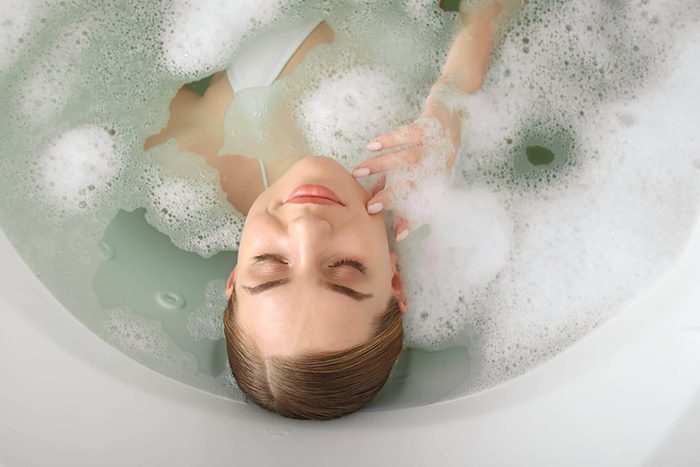
Take a dip
A bath a day may keep eczema flares away, says Peter A. Lio, MD, a clinical assistant professor of dermatology and pediatrics at Northwestern University Feinberg School of Medicine in Chicago. “Bath additives such as baking soda, sunflower seed oil, and even apple cider vinegar may also help soothe the skin, but bathing alone seems to have a positive effect for most patients, especially if you moisturize immediately after and avoid using harsh soaps,” he says. “Washing off irritants and allergens from the skin may be part of why it works, but allowing the skin to become deeply hydrated provides an advantage as well.” It is also possible that the sheer relaxation of taking a bath has a positive impact on skin health as stress is known to trigger eczema flares. (Whatever you do to lower stress, be sure to skip these stress reducers that don’t work.)
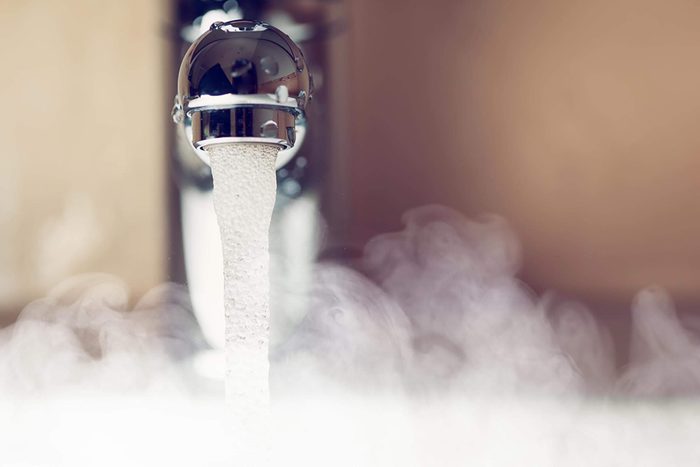
Turn down the heat
Curious what the healthiest temperature for your shower is? Choose lukewarm (never hot) water for showers or baths, stresses Jeffrey Fromowitz, MD, a dermatologist in Boca Raton, Florida. “Heat acts as a degreaser and strips the skin of fats and oils”—which is what your eczema care regimen is trying to preserve, he says. Even worse: Very hot water can stimulate mast cells—which encourage the release of histamines—and that triggers the itch-scratch cycle, he says. “We call it the wicked wheel.”
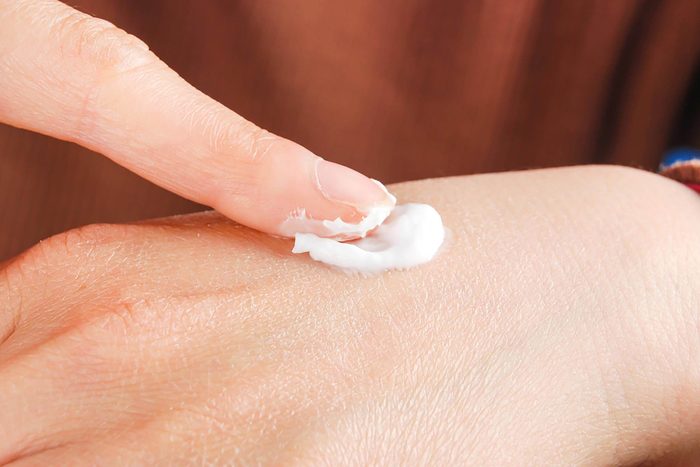
Consider prescription creams
Sometimes you need to go the extra step, Dr. Fromowitz says. Although the moisturizers you can get at the drugstore will help repair your skin’s barrier function, certain prescription creams such as Epiceram controlled release skin barrier emulsion kick things up a notch. “Epiceram designed the product to mimic the natural proportions of three essential fats found in healthy skin. “Barrier function is compromised in all eczema patients,” he says. You may be damaging your barrier function without realizing it.
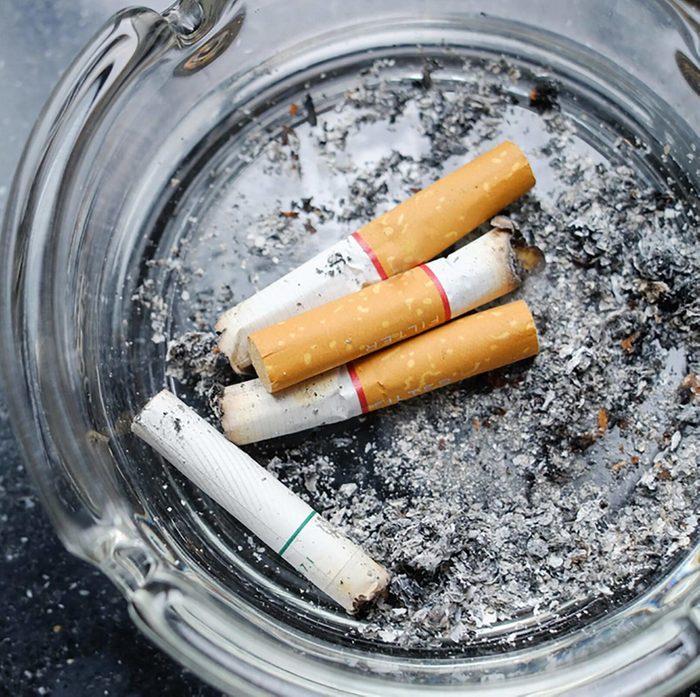
Mind your triggers
If you have eczema, you are more susceptible to environmental irritants such as cigarette smoke, formaldehyde from household disinfectants, some vaccines, glues and adhesives, and isothiazolinones (an antibacterial in personal care products). “In normal healthy skin, such exposure may make you slightly itchy or do nothing at all, but if you have eczema, it can send you over the edge and activate a flare and itch-scratch cycle,” Dr. Fromowitz says. “Try to be aware of your eczema triggers such as dust, smoke, and getting overheated, by keeping track of when your skin when it is at its worse.”
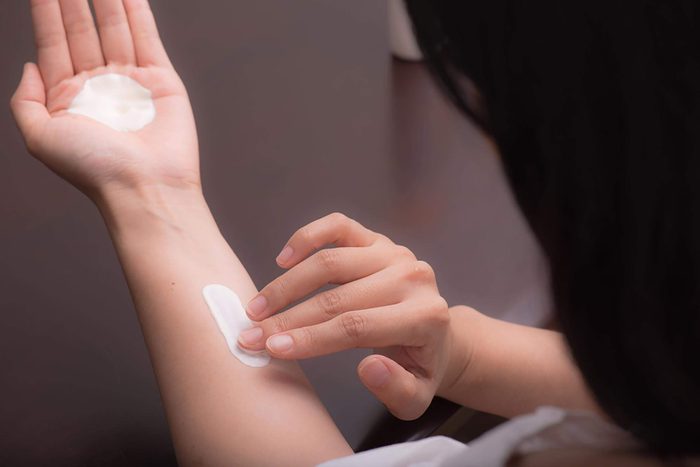
Slather on sunscreen
Sunscreen is important for everyone including people with eczema, as long as you choose the right one, Dr. Fromowitz says. “If you have eczema, limit your use of chemical screens in favor of physical blockers with titanium dioxide and zinc oxide as these are gentler on skin and less irritating,” he says. “The fewer ingredients, the better.”
Some safe picks include CeraVe Sunscreen Body Lotion SPF 50, Aveeno Protect + Hydrate Lotion Sunscreen With Broad Spectrum SPF 50, and the TIZO3 line of sunscreens such as TIZO 2 Non-Tinted Facial Mineral Sunscreen SPF 40.
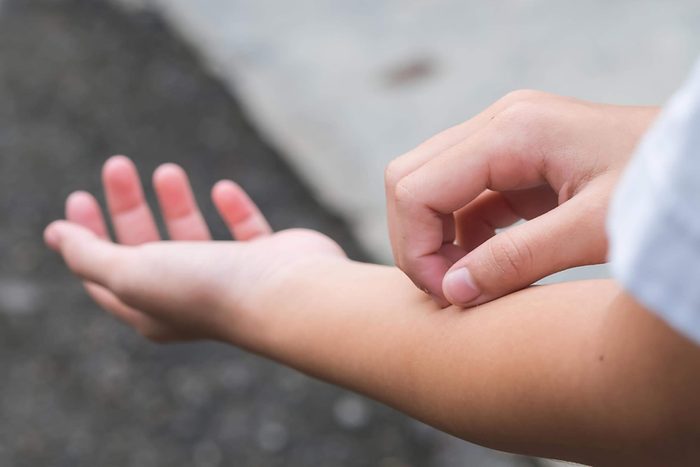
Don’t scratch
It’s incredibly hard to keep your hands to yourself when you are in the midst of the dreaded itch-scratch cycle, Dr. Fromowitz admits. “You can keep a basin with ice water and a rag and place it on the itchy spot instead of scratching.” This works because cold and itch involve the same nerve fibers, and cold can break the neural impulse to scratch. Another option is Sarna Anti-Itch Lotion, which contains menthol. “It’s cooling and soothing,” he says.

Choose fragrance-free detergents
Everything from your laundry detergent and makeup to your hair spray and cleaning supplies should be fragrance-free. “People with eczema are very sensitive to contact dermatitis,” D. Fromowitz says. Avoid dyes and harsh detergents when doing laundry. Look for “fragrance-free” and “dye-free” on the label and plant-based ingredients that are gentler on skin, he says. “Try liquid products, as they tend to leave fewer residues than powders.” And wash all new fabrics before use. (Here are some more helpful rules that people with sensitive skin to live by.)
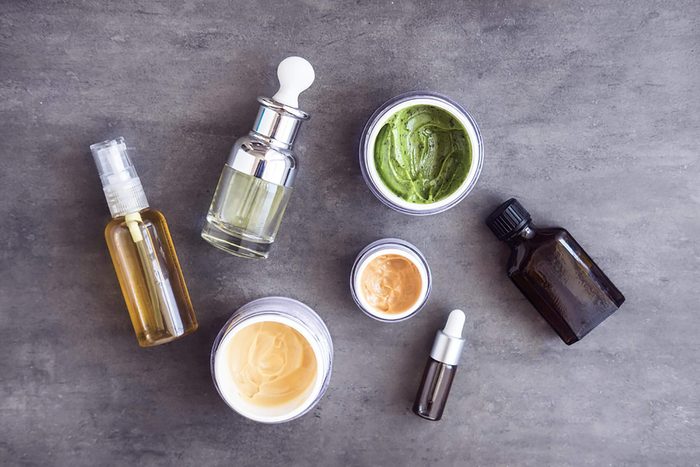
Check in with your doctor
There is no one-size-fits-all recommendation for how to treat eczema and how often you should check in with your dermatologist if you have eczema. “It’s driven by symptoms,” Dr. Fromowitz says. “If you are unwell come on in, but if you are doing great we don’t have to see you until your annual skin cancer check.” (Find out what it’s really like to live with severe eczema.)
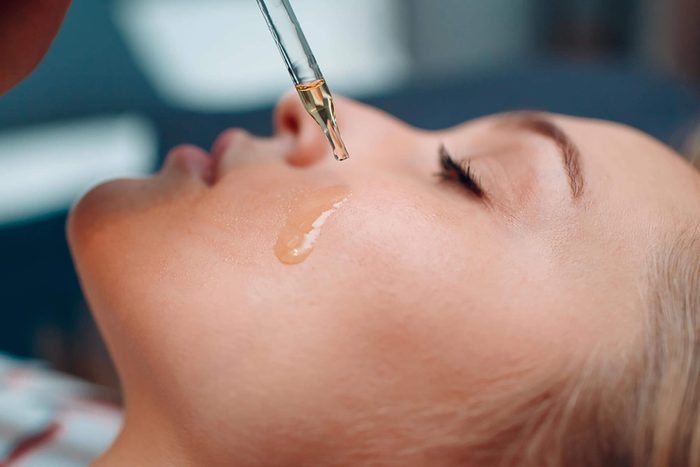
Break the cycle
Want to know how to get rid of eczema? Breaking the cycle, Dr. Friedman says. “Oil up often as the longer inflammation persists, the worse it gets,” he says. “Break the cycle early on because the sooner you treat, the faster it goes away.” This miracle trick may help too.
